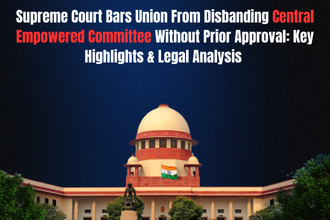In an unusual and deeply concerning incident, a Delhi court was compelled to defer the dictation of its judgment in a fatal road accident case due to a disturbing turn of events. The regular stenographer assigned to Judicial Magistrate Neha Garg’s courtroom allegedly left the courtroom after threatening to die by suicide, prompting an immediate adjournment. The judgment was later pronounced on May 9, 2025, convicting the accused truck driver for rash and negligent driving.
Background of the Case: State vs. Sukhdev @ Sukha
The case stems from a 2012 road accident where the accused, identified as Sukhdev alias Sukha, was charged with causing the death of a motorcyclist by driving a truck in a rash and negligent manner. The prosecution alleged that Sukhdev had violated traffic norms and endangered public safety, ultimately leading to a fatal collision.
The case was tried at the Karkardooma Courts Complex in East Delhi, with Judicial Magistrate Neha Garg presiding. Over the years, the case saw multiple procedural delays, a common occurrence in accident-related prosecutions. However, the events that transpired on April 29, 2025, were unprecedented.
Stenographer’s Suicide Threat Disrupts Judicial Proceedings
According to the court order passed on April 29, Magistrate Neha Garg noted that she was unable to dictate the judgment because the court’s regular stenographer abruptly exited the courtroom after threatening to commit suicide. The judge recorded in her order:
“Judgment could not be dictated as the regular stenographer of the court has left the court after threatening the court that he will commit suicide. Accordingly, relist for pronouncement of Judgment.”
The identity of the stenographer has not been publicly disclosed. The reason behind his actions remains unclear, but the incident has raised serious concerns about the mental health and workplace stress faced by court staff, particularly stenographers who are often under intense pressure due to heavy workloads and time-sensitive dictation tasks.
Court Pronounces Verdict on May 9, 2025
After the unexpected adjournment, the court resumed proceedings and pronounced the judgment on May 9. The truck driver, Sukhdev, was convicted under two provisions of the Indian Penal Code (IPC):
- Section 279 IPC – Rash driving or riding on a public way
- Section 304A IPC – Causing death by negligence
The Court found sufficient evidence to conclude that the accused drove the truck without due caution and consideration for human life, which resulted in the fatality of a motorcyclist.
Legal Analysis: Understanding Sections 279 and 304A IPC
Section 279 IPC criminalizes the act of driving or riding a vehicle in a manner so rash or negligent as to endanger human life or cause injury. This is a cognizable, bailable offense with a punishment of up to six months imprisonment or a fine of ₹1,000, or both.
Section 304A IPC, on the other hand, deals with causing death by negligence. This section applies when death is caused not by intention or knowledge (as in culpable homicide), but by a rash or negligent act. It is punishable by up to two years of imprisonment, or with fine, or both.
In the present case, the court held that the prosecution had successfully established the driver’s culpability. The accident was not merely unfortunate but was the direct result of reckless behavior on a public road, which ultimately claimed a life.
Psychological Well-being of Court Staff: An Overlooked Concern
While the conviction and sentencing mark the legal closure of the case, the incident involving the stenographer has brought to light the often-ignored mental health challenges faced by judicial support staff. Courtrooms are high-pressure environments. Stenographers play a critical role in maintaining the efficiency and accuracy of court proceedings, yet they often remain in the background, with little attention paid to their workload, stress levels, or mental well-being.
This incident calls for immediate introspection within the judiciary. There is a pressing need to:
- Conduct mental health assessments and provide psychological support to court staff.
- Implement workload management systems to reduce pressure on stenographers and clerical staff.
- Foster a workplace environment that allows staff to speak openly about stress and seek help without stigma.
Institutional Response and the Need for Reform
While the court acted prudently by adjourning the matter and rescheduling the judgment, the institutional response must not end there. A thorough inquiry should be conducted into the circumstances that led to the stenographer’s threat. Depending on the outcome, appropriate support or disciplinary measures must be taken.
The Delhi High Court and administrative bodies like the Delhi District Courts Services Authority (DSLSA) may consider establishing employee wellness cells within court complexes. Regular mental health counseling sessions, grievance redressal mechanisms, and stress management workshops could go a long way in addressing such issues before they escalate into crises.
Public Reaction and Media Scrutiny
The incident has garnered significant media attention, not only because of the suicide threat but also due to the larger implications for judicial administration. Legal professionals, mental health advocates, and members of the public have expressed concern over the apparent breakdown in support systems for court employees.
Bar associations and legal aid organizations have also voiced support for better mental health policies in courts. The incident may serve as a turning point for the judiciary to prioritize staff welfare as much as legal justice.
Conclusion
The State vs. Sukhdev @ Sukha case will be remembered not only for its legal outcome but also for the unusual and distressing disruption that delayed its judgment. While justice was eventually served in convicting a reckless driver whose actions led to the loss of a life, the human cost borne by those working behind the scenes—the court staff—has taken center stage.
The judiciary must treat this as a wake-up call and take proactive steps to ensure that those who uphold the rule of law are not themselves left without support. The integrity of the legal system depends not only on fair verdicts but also on the well-being of everyone who contributes to delivering justice.


